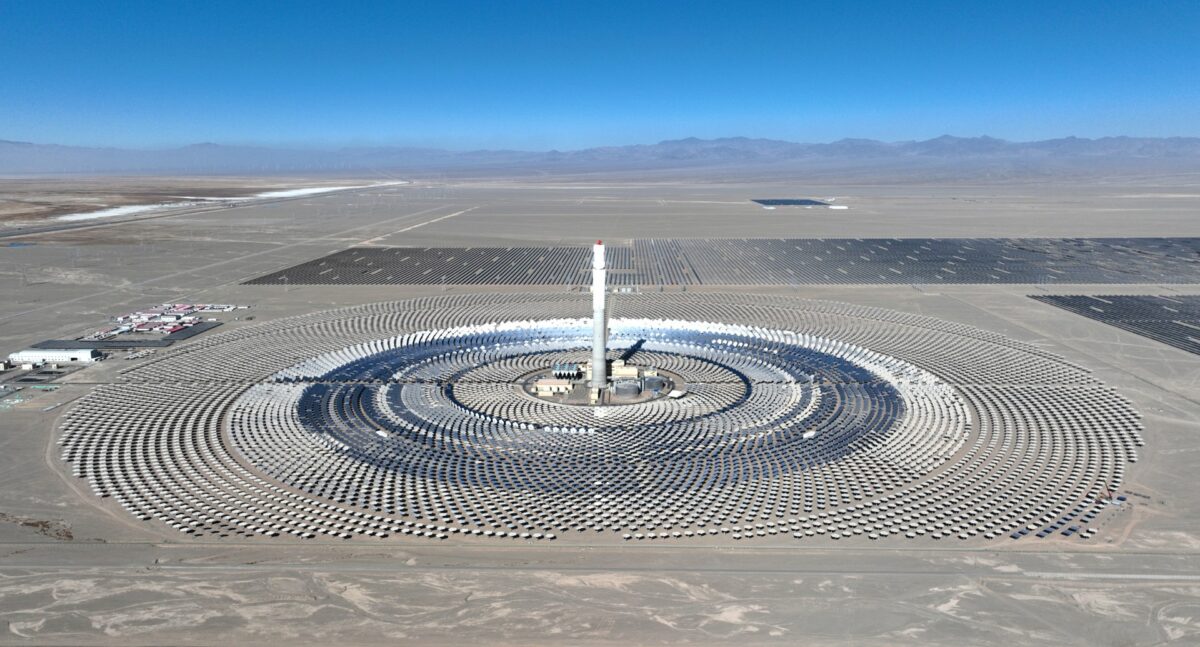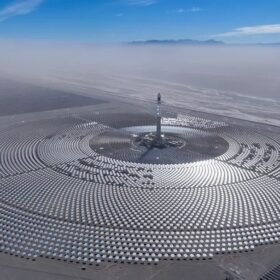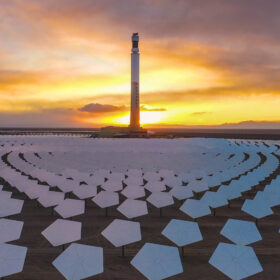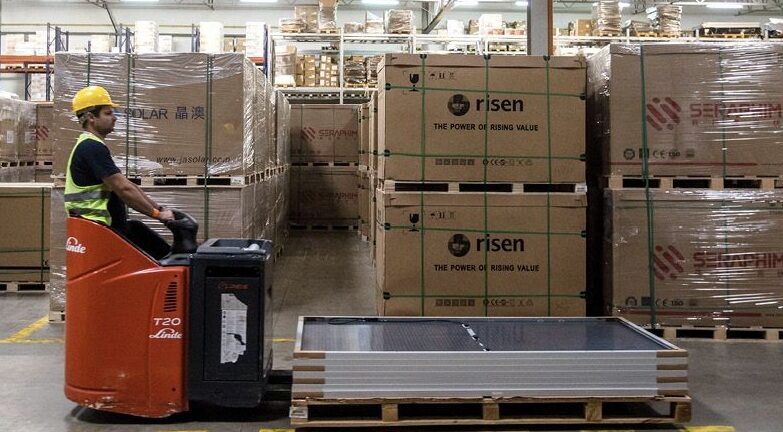Chinese renewable energy company SDIC Gansu New Energy has commissioned the 750 MW Akesai Huidong CSP-PV plant in the high-altitude deserts of Jiuquan, China's Gansu province.
The facility includes a 110 MW CSP tower and a 640 MW solar plant. Covering 16.5 km², the solar thermal segment spans 2 km² and is China’s largest project combining these two solar energy sources.
The project integrates concentrated solar thermal and photovoltaic systems to overcome the intermittency and variability of pure photovoltaic plants. Photovoltaic panels generate electricity during the day, while the CSP system stores solar energy in molten salt for nighttime release, ensuring stable power output for up to eight hours. This hybrid setup smooths grid integration and boosts economic viability.
The facility uses secondary-reflection, tower-based CSP technology, featuring a 200-meter-high absorption tower and 11,960 pentagonal heliostats supplied by Dongfang Boiler, which is part of Dongfang Electric Group.
Each heliostat, with a reflective area of 48.5 sqm, directs sunlight to the heat absorber, achieving a total reflective area of 580,000 sqm. These heliostats deliver high reflectivity, wind resistance, precision, and efficiency.
The photovoltaic section, completed in August 2024, incorporates monocrystalline passivated emitter and rear contact (PERC) cells modules with single-axis tracking systems.
China Power Engineering Consulting Group, East China Electric Power Design Institute, and China Railway 11th Bureau partnered on the project. The Akesai plant, part of China’s “desert, Gobi, and arid regions” solar energy initiative, is expected to generate 1.7 TWh of electricity per year.






By submitting this form you agree to pv magazine using your data for the purposes of publishing your comment.
Your personal data will only be disclosed or otherwise transmitted to third parties for the purposes of spam filtering or if this is necessary for technical maintenance of the website. Any other transfer to third parties will not take place unless this is justified on the basis of applicable data protection regulations or if pv magazine is legally obliged to do so.
You may revoke this consent at any time with effect for the future, in which case your personal data will be deleted immediately. Otherwise, your data will be deleted if pv magazine has processed your request or the purpose of data storage is fulfilled.
Further information on data privacy can be found in our Data Protection Policy.